Geography at CKIS
Our vision for Geography at CKIS
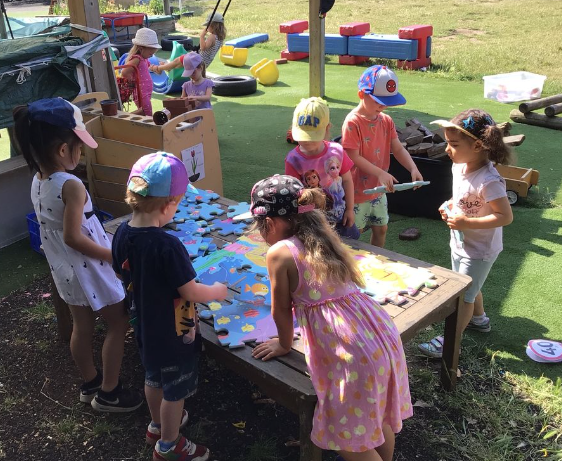
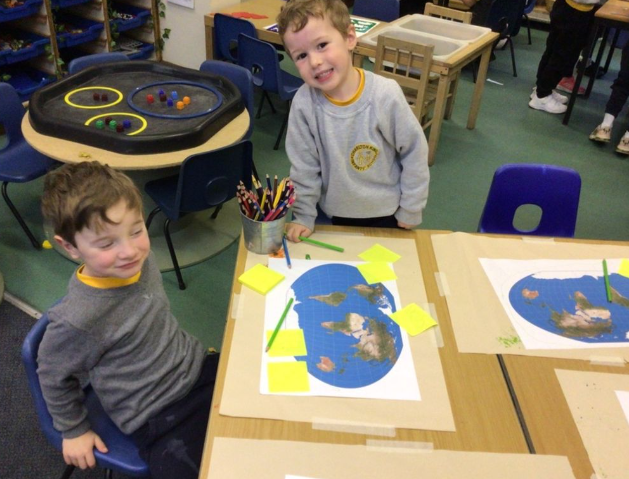
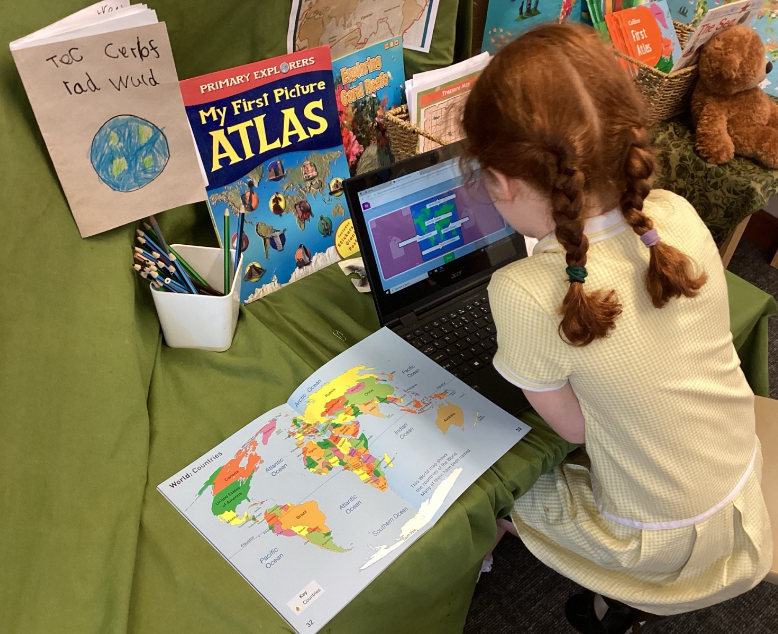
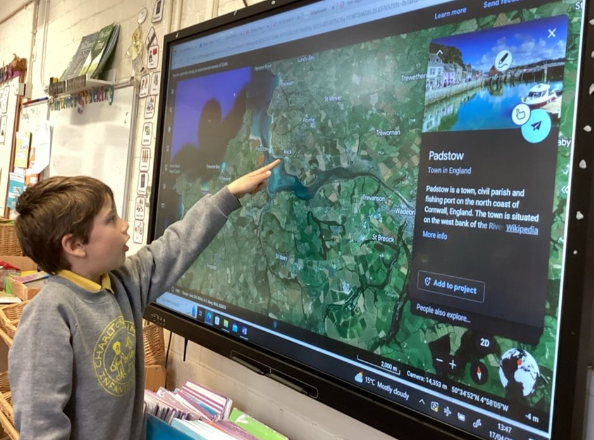
At Charlton Kings Infant School, we believe that Geography helps to provoke and provide answers to questions about the natural and human aspects of the world. We seek to inspire in children a curiosity and fascination about the world and the people in it, which will remain with them for the rest of their lives. We instil a passion for environmental responsibility and encourage the children to protect their world. We believe that the opportunity to engage in a variety of learning opportunities will enable all children to have access to a broad and balanced curriculum that also enhances the core areas of Literacy, Maths and Science. The curriculum is designed to develop knowledge and skills that are progressive, as well as transferable, throughout their time at CKIS and to CKJS and beyond.
Purpose and aims of Geography (Intent statement)
Our curriculum provides a broad range of experiences for our pupils: Our pupils’ backgrounds, our culture and our climate for learning provide the following drivers that underpin ALL areas of our Geography curriculum:
- Learning to learn - which helps pupils to concentrate and focus and build resilience as learners.
Our Geography curriculum encourages children to develop their enquiry skills through the use of their map skills and fieldwork allowing the children to develop their resilience as learners. The Geography curriculum will inspire children’s curiosity and help them become passionate learners about the world through engaging them in exciting and meaningful learning, both about their locality and the wider world. The Geography curriculum also helps children build their vocabulary through the use of key vocabulary definitions being explicitly taught and built upon across the school.
- Culture and Diversity - which helps pupils to develop enquiring minds about the wider world.
The Geography curriculum allows children the opportunity to explore different cultures. This helps children to gain an understanding of differences around the world and promotes mutual respect and tolerance within local and wider communities.
- Environment and Community - which helps to instil in our pupils a respect for our environment and for our local and wider communities
A key element of our Geography curriculum is instilling a sense of environmental responsibility and respect for our world. Throughout the school, the children learn about issues our world is facing and what they can do to help, such as saving the rainforests and looking after our oceans. Our Geography curriculum is designed to teach children about the local community and the part they play in it, individually and as a school. Particularly in Year 2, the children will compare different communities around the world.
– Creative arts and physical development - which helps our pupils to express themselves and excel as holistic learners
Children are encouraged to demonstrate their Geographical learning using the creative arts, showing their understanding of different cultures through different mediums. We promote physical development through exploration of different environments, such as through local visits and exploration of our school grounds. We also make cross curricular links to the PE curriculum by completing ‘Commando Jo’ challenges linked to our Geography learning, such as getting children to complete survival activities for different environments.
We offer a thoughtful range of experiences that support our culture: pupils enjoy a ‘full spectrum’ of academic, physical, spiritual, moral, social, cultural activities that enrich their lives. We aim to ensure that all children have the confidence and skills to develop as resilient life-long learners.
Our curriculum has been developed over time through:
- Analysing the strengths and weaknesses of our previous curriculum
- Considering how the National Curriculum aims and the Early Years Goals are being met across the school.
- Being active participants in the CLP Subject Leader Network Meetings
- Accessing subject specific CPD and using this to inform the Geography curriculum design.
We aim for all pupils to:
- Develop an understanding of the Geography subject knowledge (see termly schemes of work) so that they develop conceptual understanding and the ability to recall and apply knowledge rapidly and accurately.
- Acquire and develop their Geographical skills such as map reading, using atlases, compass directions and aerial photographs allowing them to apply these skills independently in Challenge Time.
- Solve problems by applying their Geographical skills to a variety of challenges.
- Understand the subject specific vocabulary (see medium term plans) and apply it independently in Challenge Time.
The teaching of Geography at CKIS (Implementation)
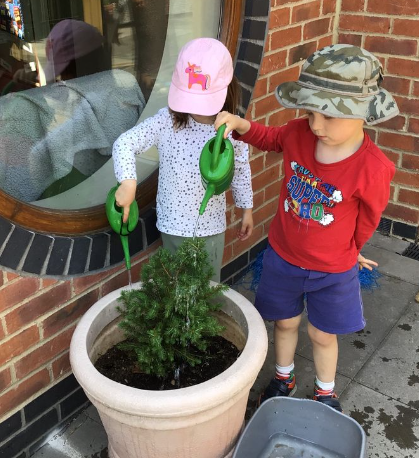
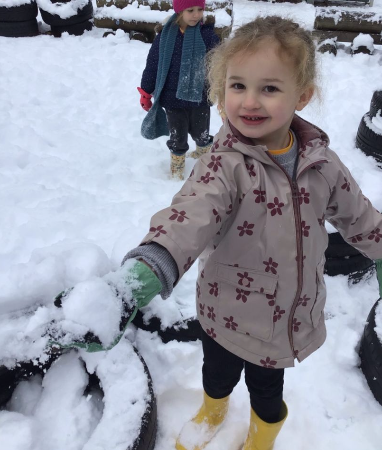
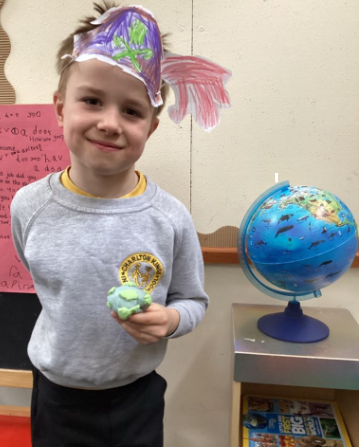
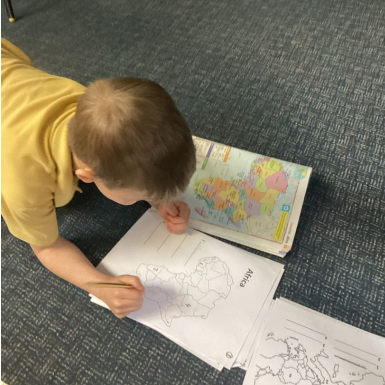
The Geography curriculum is carefully and coherently sequenced to enable our children to develop a growing knowledge and skills.
The schemes of work outline the specific knowledge that we expect our children to know and understand by the end of each term in every year group. The key learning directly matches the National Curriculum and the Early Years Framework and additional learning that we believe is essential for our children to know is also included.
The Learning Leaves are used to share what we will be learning in each term with parents. As well as outlining the key knowledge we will be teaching the children, the learning leaves also feature key vocabulary and definitions as well as further learning opportunities.
With the support of the subject leader, the year group teams create medium term plans from the schemes of work. Staff build upon prior learning when putting together lesson by lessons plans with each unit starting with a lesson 0 to elicit and assess prior knowledge. The medium term plans are working documents that are adapted to cater to individual and cohort needs.
AT CKIS every child is recognised as a unique individual. We celebrate and welcome differences within our diverse school community, encouraging all to grow and flourish. Learning is centred on experiencing the joy of discovery.
The ability to learn is underpinned by the teaching of basic skills, knowledge, concepts and values, with a vision to prepare our children to be life-long learners, rooted in our school motto: The wings to fly, the confidence to try.
Geography in our Foundation Stage is covered in the ‘Understanding the World’ area of the EYFS Curriculum. It is introduced directly through a whole class teach and then in provision there are a variety of activities that encourage every child to explore, demonstrate and apply their geographical knowledge and demonstrate and apply their geographical skills.
During their first years at school our children will learn to make sense of their physical world and their community. The children experience of range of personal experiences, walking around their local area and visiting key places in the community such as the library, park and local places of worship. The children learn about hot and cold lands in the world, preparing them to learn about the equator in Key Stage 1. The children gain basic geographical skills such as creating maps for treasure hunts and adventures. Children begin to develop their geographical vocabulary which will continue to grow across the school.
Geography in KS1 is introduced directly through a whole class teach. Some lessons are followed by the children completing an expected outcome to demonstrate their understanding. In provision there are a variety of activities that encourage every child to explore, demonstrate and apply their geographical knowledge and demonstrate and apply their geographical skills.
The Geography curriculum programme of study (for KS1) is divided into 3 main areas:
- Location and Place Knowledge
- Human and Physical Features
- Geographical Skills and Fieldwork
We ensure the children are ready for the KS2 curriculum by learning to name and locate the world’s 7 continents and 5 oceans and to name, locate and identify characteristics of the four countries of the United Kingdom and their capital cities. The children learn to understand geographical similarities and differences through studying the human and physical geography of a small area of the United Kingdom and comparing and contrasting it to a small area of a non-European country. Children learn to identify seasonal and daily weather patterns in the United Kingdom and the location of hot and cold areas of the world in relation to the equator and the North and South Poles. Children gain an understanding of basic geographical vocabulary to refer to key physical and human features of different areas, such as rainforests and beaches.
We instil a strong sense of responsibility in our children to look after their world by teaching them about issues our world is facing, particularly focusing on deforestation in the world’s rainforests and plastic pollution in our oceans.
Another key element of preparing the children for Key Stage 2 is helping them gain a toolkit of key geographical skills. The children learn to use world maps, atlases and globes to identify different countries, continents and oceans that they have learnt about throughout the Key Stage. They gain the skill of using simple compass directions and locational and directional language. Children learn to devise simple maps and construct basic symbols in a key. Children use simple fieldwork and observational skills to study the geography of our school and the key human and physical features in its surrounding environment.
Gaining a secure understanding of geographical vocabulary is essential for the children to succeed in Geography. Below shows when different vocabulary is explicitly taught in each year group:
|
|
EYFS |
Year 1 |
Year 2 |
|
Term 1 |
map house community weather route Charlton Kings Infants’ School season Earth planet |
local national United Kingdom England Wales Scotland Northern Ireland London Cardiff Belfast Edinburgh autumn winter spring summer thermometer weather vane rain gauge |
country climate population
|
|
Term 2 |
land globe explorers North Pole South Pole atlas environment protect destroy camouflage recycle |
continent Asia Africa North America South America Antarctica Europe Australia equator hot land cold land rainforest Amazon Rainforest human features physical features deforestation palm oil global scale |
village town city address river mountain facilities |
|
Term 3 |
symbol Cheltenham Charlton Kings |
ocean sea Pacific Ocean Atlantic Ocean Indian Ocean Southern Ocean Arctic Ocean English Channel North Sea Irish Sea habitat medicine oxygen trade plastic pollution reduce, reuse, recycle |
coast beach coastline island tourist pier bay promenade shingle |
Demonstrating learning
In Geography, pupils demonstrate their learning in a variety of different ways using skills they have learnt across the curriculum.
The pupils demonstrate their understanding through enrichment tasks in the continuous provision. These are observed and can be recorded in a number of ways. Children display expected outcomes highlighted on the medium term plans in their special books, where they apply the knowledge they have learnt in Geography lessons. Seesaw is used to take pictures of practical enrichment activities and videos are also recorded of children and uploaded to Seesaw to allow children to verbally explain their geographical understanding. Children also demonstrate their geographical skills through enquiry based learning, exploring and investigating environments.
Teachers carefully plan and monitor progress and adapt medium term plans to include key questions and checkpoints for children to demonstrate understanding in age-appropriate ways.
Meeting the needs of all pupils (inclusion)
Our school supports the principle that young children learn through play, and through well planned structured opportunities that are relevant, engaging and promote deep level thinking and learning.
Teaching through both a rich continuous provision, paired work, small group and whole class learning opportunities skilfully builds upon the experiences of the child and promotes their next steps as a learner.
Teachers and Teaching Partners competently provide a balance of structured cross curricula learning activities and child-initiated opportunities through high quality indoor and outdoor learning environments.
In this way we aim to ensure that children are actively involved in their learning and deepen their knowledge, skills and understanding becoming masters of their learning as:
• Problem solvers
• Resilient learners
• Collaborative thinkers
• Inspired questioners
All pupils are entitled to a broad and balanced curriculum that meets their needs.
Geography is taught in class groups, and accessible in our provision with all pupils included.
All our teachers know the pupils in their class and their differing needs well. They plan and adapt lessons to help all pupils know and remember more so they make very good progress.
Some pupils, including those with special educational needs or disabilities, or those with English an as additional language, may need extra support to access, understand and remember key concepts.
For these pupils, teachers use a range of effective strategies, whilst promoting independent learning as far as possible. These may include:
● adapting and scaffolding pupil activities and resources
● focussed additional support from an adult in class
● extra pre learning or overlearning of key knowledge before or after the lesson
Some pupils very quickly grasp the main concepts being taught and are able to think more deeply to extend their learning. To ensure they reach their full potential, teachers may:
● set more complex activities that require thinking at greater depth
● ask pupils to apply their knowledge to a different situation
● go further by asking them to explain their thinking to others or present their findings to a group
Assessment (Impact)
Formative Assessment
At CKIS teachers constantly assess how far their pupils understand key concepts throughout lessons, mainly through questioning and observation. Quizzes and other games are regularly used to assess how far pupils have remembered learning from the lessons before. Teachers then adapt their teaching to ensure misconceptions or gaps in knowledge are addressed. In addition, they may need to introduce opportunities for more challenge or deeper thinking. Geography units always begin with a ‘Lesson 0’ where the children revisit what they have learnt previously, allowing teachers to assess their prior learning and adapt planning from there. Each Geography lesson will start by revisiting what was learnt in the previous lesson, allowing the teacher to assess whether the knowledge has been retained.
End of unit Assessment
Key assessment criteria are written into our school curriculum and medium-term plans.
Assessments of children's learning are made and assessed through observations and classwork and shared as evidence on SeeSaw. These assessments contribute to a summative judgement at the end of each term against the Geography statements supplied by the Geography lead and found on INSIGHT.
Teachers and subject leads monitor children’s progress and attainment throughout the year to inform ongoing teaching and learning.
This is carried out through book looks, observations and using the data on INSIGHT. Teachers and subject leads ensure that they assess a balance of the disciplinary and substantive knowledge, outlined in each term’s Schemes of Work.
Reporting to families and statutory assessment
The children’s progress across the curriculum is shared with families during parents evening appointments and their learning is shared through observations on Seesaw throughout the year. At the end of every year, families receive An End of Year report which comments on the children’s strengths across the curriculum and areas for improvement. The teachers make judgements for each child’s attainment and progress in every subject, which is included in the report.
Monitoring and Evaluation
The subject leader for Geography monitors the quality of education regularly in accordance with the school’s monitoring timetable. This may take the form of:
● learning walks and drop ins, usually with a member of the senior leadership team, and sometimes with a governor.
● book looks. The subject leader looks at a range of books or other evidence across the school, sometimes with senior leaders or an adviser or governor.
● scrutiny of planning, particularly to evaluate coverage and progression within the curriculum as well as the extent to which planning is catering for the range of needs of pupils
● pupil conferencing
● surveys for pupils and/or staff
● lesson observations.
Subject leaders have regular support from the senior leadership team where aspects of the subject policy and action plan are monitored and discussed. Action plans are reviewed and shared with the staff three times a year to ensure all staff are aware of key actions.
Resulting actions may emerge with additional leadership support, resources or policy changes implemented.
Subject leaders routinely have a teacher appraisal objective linked to an aspect of their subject leadership. Following all these activities, strengths and areas for development are reported and discussed with staff. Resulting actions are recorded on the subject action plan and reported to governors.
At the end of each year the action plan for Geography is fully evaluated. In addition, the subject leader evaluates how far Geography is meeting our curriculum intent statement. This evaluation feeds into the action plan for the following year. Evaluated action plans and evaluations are reported to the senior leadership team and governors.
The role of the governors
Every subject has a specific governor allocated to it. The governor for Geography is Charlie Clover.
This governor evaluates the activities within this aspect and the impact on the quality of education and pupil outcomes.
They meet with subject leaders and review aspects of the subject, including seeing lessons in practice and talking to children.
Their findings are reported to the Governing Board. In this way, leaders are held accountable for the aspects they are responsible for, and subject leaders are able to access the appropriate support and resources to achieve their aims.
